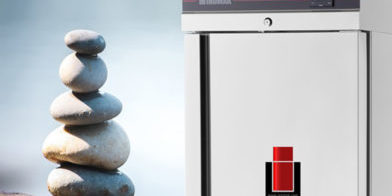7 Tips to Prolong the Life-Cycle of your Appliance!
The refrigerator is an appliance which is frequently neglected in the professional kitchen and this is because of its supporting and “noise-free” nature compared to the other appliances that steal the show.
In this article, we will give you 7 tips on how to maintain your refrigerator in good condition for many years to come, which will benefit your business in many ways.
The refrigerator is a regulating factor in a professional kitchen. It is the link in the chain that is concerned with the hygiene of ingredients that are used to prepare the food. From this alone, it is obvious that it significantly contributes in maintaining the quality of a catering business’ food.
However, on many occasions its importance is downgraded resulting in a shorter than expected lifespan.
Below we present 7 tips on how to dramatically improve the life-cycle of your refrigerator, while saving your business money:
Market research
The longevity of a refrigerator starts from its choice. The appliance’s quality features will initially determine its life-cycle. Choose appliances with features that focus on the use of superior quality 18/8-10 AISI type 304 stainless steel, the antibacterial & anticorrosive protection of the evaporators and the problem-free function of the appliances in room temperatures of +43οC, as these indicate a quality product with more chances of lasting longer.
Proper placement of the appliance in the area
When placing the appliance, the cooling mechanism’s ventilation must be unobstructed. Make sure that there is enough room for air circulation maintaining a distance of 25 cm from the ceiling, particularly in the case of cooling chambers. In the case of bench refrigerators, ensure that there are no obstacles in front of the cooling mechanism’s ventilation vents.
Efficient storing of the cooling area
The refrigerator will function properly when air freely circulates in its interior. Attention must be paid to the following 3 points.
- Place the containers on the racks and not on the floor.
- Place the stored ingredients on the surface of the racks alone.
- Do not exceed the maximum level marking.
Food storage method
A significant source of the problem is the food itself, especially acidic food. Store food in appropriate containers and place them covered in the refrigerator. Acidic food, such as lemon, vinegar, wine and the like must be sealed in air tight containers.
Cleaning
The appliance’s regular cleaning, according to the manufacturer’s instructions, not only ensures the food’s hygiene, but also extends its life-cycle. The leading causes of problems are the cleaning agents and instruments used.
CAUTION! Chlorine-based cleaning agents are prohibited because they may significantly corrode the stainless steel. Similarly, the use of harsh cloths and steel brushes may irreversibly damage the material. Instead, opt for warm soapy water and clean, soft cloths to protect surfaces from abrasions. The cleaning frequency depends on the use and the orderliness of those that use the appliance.
Periodic Maintenance
As you might expect, refrigerators need to be periodically serviced. The frequency depends on the conditions in the operating area and the use of the refrigerator. Delegate the maintenance frequency & performance to an expert. On average, the recommended frequency is every 12 months.
Staff training
The last, but possibly most important tip is to train the people that use the appliances. Dedicate the time that is required by your business’ team, so that they comprehend the benefits of all the above for the business and how these will be eventually returned to them.
 Προϊοντικός Κατάλογος
Προϊοντικός Κατάλογος Blog
Blog Σύνδεση
Σύνδεση







